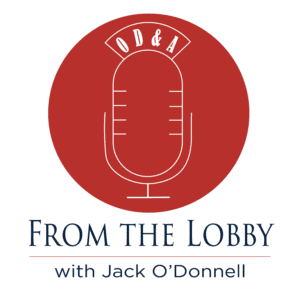Good Morning from the Nation’s Capital
Last Thursday, Republicans in the United States Senate unveiled a $568 billion infrastructure counterproposal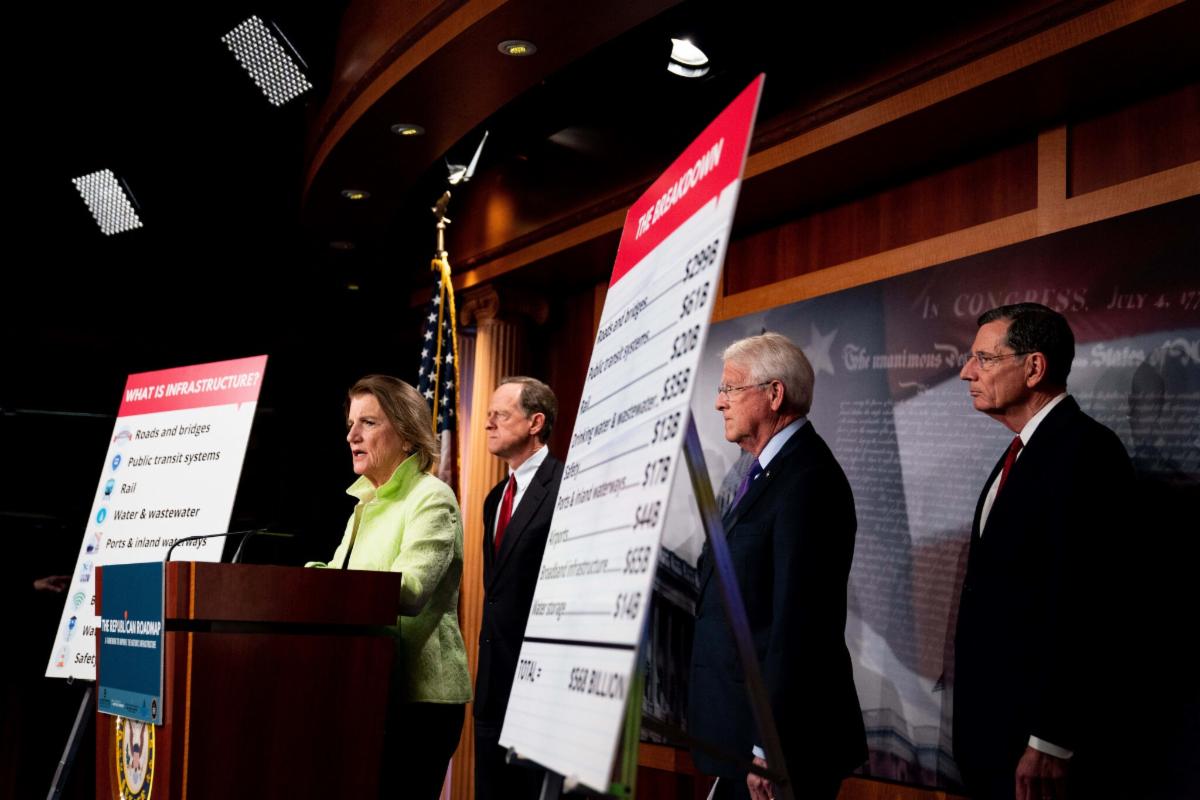 to the Biden Administration’s $2.25 trillion American Jobs Plan, laying out their opening salvo in negotiations. President Biden—and his Congressional allies including Democratic Senator Chris Coons of Delaware—welcomed the proposal as a positive step on the path toward a final bipartisan deal. However, there is little chance that most Democrats in Congress will embrace anything close to the package that many of them—including centrists like Senator Joe Manchin (D-WV)—have dismissed as “insufficient for the economy’s needs and an unfair burden on middle-class taxpayers.”
to the Biden Administration’s $2.25 trillion American Jobs Plan, laying out their opening salvo in negotiations. President Biden—and his Congressional allies including Democratic Senator Chris Coons of Delaware—welcomed the proposal as a positive step on the path toward a final bipartisan deal. However, there is little chance that most Democrats in Congress will embrace anything close to the package that many of them—including centrists like Senator Joe Manchin (D-WV)—have dismissed as “insufficient for the economy’s needs and an unfair burden on middle-class taxpayers.”
In fact, most Democrats responded to the Republicans’ proffer with scorn: “It fails to meet the moment we’re in,” said Sen. Bob Casey (D-Pa.), who like some other Democratic senators said it was “not a proposal I could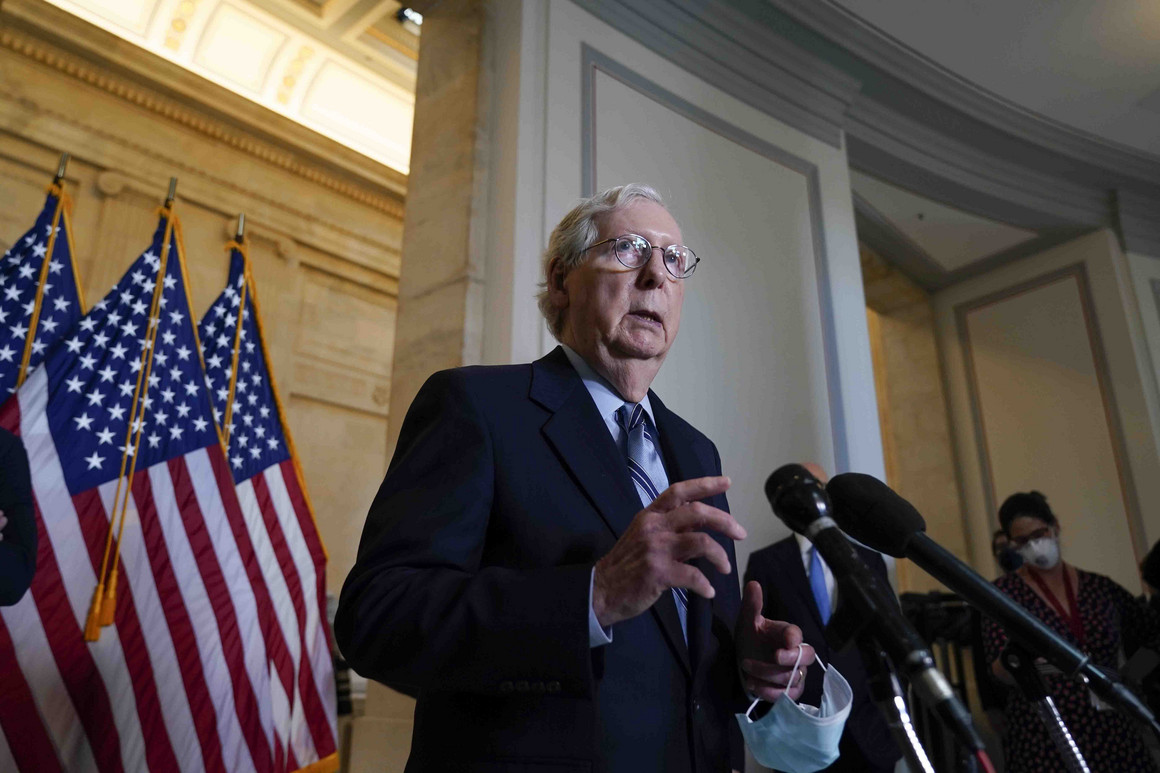 support.” Sen. Ron Wyden (D-Ore.) called the proposal “far too small” and said it “paves over the status quo. The contrast could not be starker.” In addition to the bill being about a quarter of the size, Democrats have criticized the Republicans’ plan for a lack of real “pay-fors.” The plan slashes Biden’s proposed corporate tax hikes and replaces them with unspecified “user fees”; “financing tools” to entice the private sector to open its pocketbook; and unused money from prior Covid relief bills to fund the $568 billion proposal.
support.” Sen. Ron Wyden (D-Ore.) called the proposal “far too small” and said it “paves over the status quo. The contrast could not be starker.” In addition to the bill being about a quarter of the size, Democrats have criticized the Republicans’ plan for a lack of real “pay-fors.” The plan slashes Biden’s proposed corporate tax hikes and replaces them with unspecified “user fees”; “financing tools” to entice the private sector to open its pocketbook; and unused money from prior Covid relief bills to fund the $568 billion proposal.
Nonetheless, most in Washington agree that addressing infrastructure is next on the agenda. However, exactly what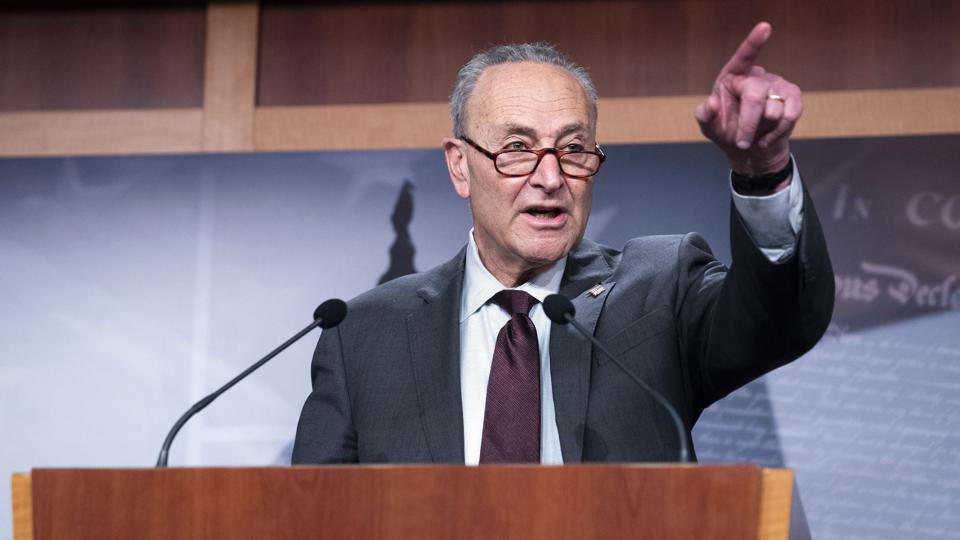 comes next is more difficult to determine. In the House, Democrats are passing the Party’s big priorities almost weekly and always along party line votes. In the Senate, Republicans can block most legislation with the filibuster (nearly 100 House Democrats gathered last week to call for Senate Democrats to get rid of the procedure), and that has created a bottleneck that will test relationships of the Moderate and Progressive wing of the Democratic Party in the coming months. Progressive priorities are being sent to the Upper House at a breakneck pace—including a sweeping election reform bill, a bill to expand background checks, legal protections for some undocumented immigrants, DC statehood, and a measure strengthening the voting rights bill and LGBTQ protections. Unsurprisingly, frustration over the Biden Administration’s prioritization of bipartisanship as well as the filibuster is mounting in Progressive circles. For some House members, it has become a real concern for re-election next year: “My constituents do not care about arcane Senate rules and procedures. … We have sent bill after bill after bill to that side of the Capitol,” said Rep. Jason Crow (D-Colo.), a military veteran who flipped a red seat in 2018.
comes next is more difficult to determine. In the House, Democrats are passing the Party’s big priorities almost weekly and always along party line votes. In the Senate, Republicans can block most legislation with the filibuster (nearly 100 House Democrats gathered last week to call for Senate Democrats to get rid of the procedure), and that has created a bottleneck that will test relationships of the Moderate and Progressive wing of the Democratic Party in the coming months. Progressive priorities are being sent to the Upper House at a breakneck pace—including a sweeping election reform bill, a bill to expand background checks, legal protections for some undocumented immigrants, DC statehood, and a measure strengthening the voting rights bill and LGBTQ protections. Unsurprisingly, frustration over the Biden Administration’s prioritization of bipartisanship as well as the filibuster is mounting in Progressive circles. For some House members, it has become a real concern for re-election next year: “My constituents do not care about arcane Senate rules and procedures. … We have sent bill after bill after bill to that side of the Capitol,” said Rep. Jason Crow (D-Colo.), a military veteran who flipped a red seat in 2018.
In the State Capital…
Last week, the Legislature advanced its first large priority of policy season. Friday evening, the Legislature delivered the New York Health and Essential Rights (HERO) Act—requiring employers to institute workplace protections for “airborne infectious diseases” in any future pandemic —to the Governor. Supporters—including ma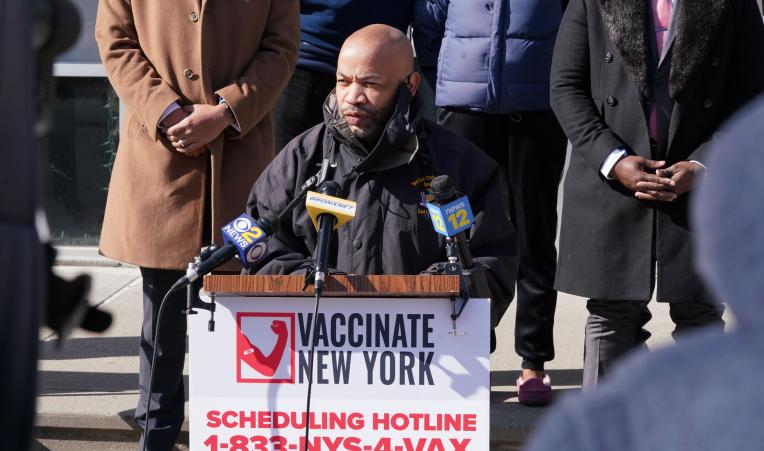 ny in organized labor who have been driving the bill since before Session began—are urging the Governor to sign it. Meanwhile, small business owners are sounding the alarm on potential unintended consequences. Ken Pokalsky, with the Business Council of New York state, says employers were not consulted about many elements of the bill, including whether businesses might be subject to what the groups call “predatory” lawsuits. The measure allows the public to sue businesses that are perceived as not complying with safety rules. “This bill lays out a lot of land mines for small business owners to run into legal problems,” Pokalsky said. The bill underscores a number of complex issues the Legislature wants to tackle before the end of Legislative Session—from gig economy to data privacy—we will be paying close attention and so should you.
ny in organized labor who have been driving the bill since before Session began—are urging the Governor to sign it. Meanwhile, small business owners are sounding the alarm on potential unintended consequences. Ken Pokalsky, with the Business Council of New York state, says employers were not consulted about many elements of the bill, including whether businesses might be subject to what the groups call “predatory” lawsuits. The measure allows the public to sue businesses that are perceived as not complying with safety rules. “This bill lays out a lot of land mines for small business owners to run into legal problems,” Pokalsky said. The bill underscores a number of complex issues the Legislature wants to tackle before the end of Legislative Session—from gig economy to data privacy—we will be paying close attention and so should you.
The Assembly Judiciary Committee again met on Governor Cuomo’s impeachment trial last Wednesday, giving a 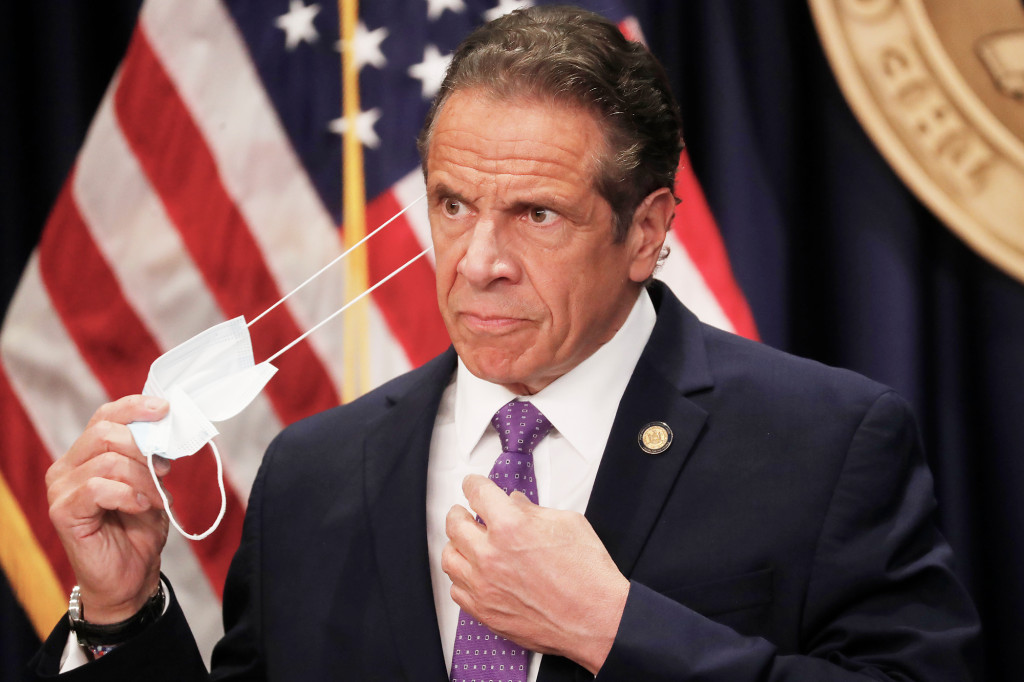 brief public update before entering into Executive Session. The Committee’s tip line has received over 200 tips and their attorneys have spoken with at least 70 lawyers for potential witnesses and 4 state agencies. However, the bigger news last week came as Legislators again blasted the Joint Commission on Public Ethics’ inaction. Widespread support from both sides of the aisle is increasing to get rid of JCOPE altogether and replace it with an independent entity. That change could be coming sooner rather than later: Senate Majority Leader Andrea Stewart-Cousins said last week that there is an appetite to perhaps make changes to the state’s ethics laws before the legislative session ends in June.
brief public update before entering into Executive Session. The Committee’s tip line has received over 200 tips and their attorneys have spoken with at least 70 lawyers for potential witnesses and 4 state agencies. However, the bigger news last week came as Legislators again blasted the Joint Commission on Public Ethics’ inaction. Widespread support from both sides of the aisle is increasing to get rid of JCOPE altogether and replace it with an independent entity. That change could be coming sooner rather than later: Senate Majority Leader Andrea Stewart-Cousins said last week that there is an appetite to perhaps make changes to the state’s ethics laws before the legislative session ends in June.
-Jack O’Donnell
For a complete guide on what to expect before the Legislature adjourns in June, check out O’Donnell and Associates End of Session “Policy Season” Preview.
FOR DAILY UPDATES, FOLLOW US:
The Strong National Museum of Play breaks ground on expansion
New visitor center planned for Niagara Falls state park
Niagara Falls State Park is getting a new $46 million visitor center that should be completed in 2023. Part of the funding is an $8 million grant from the Ralph C. Wilson Jr. Foundation and was announced at a news conference Friday. [Read more.]
webcast speakers: cannabis legalization passed, but much remains to be done
Jack O’Donnell of O’Donnell & Associates, a government relations firm, noted that as businesses prepare for the new law, there is much to be done in Albany as well. And on top of that, municipalities have until Dec. 31 to determine whether they want to allow retail dispensaries, meaning people won’t even know where it’s acceptable to set up until next year. [Read more.]
NYS Legislature: new member spotlight
 Prior to her election to the Senate, Senator Brouk spent time in management and development positions at a number of non-profits and B corporations focusing on a broad array of issues from education to sustainability. Her resume includes Chalkbeat—a non-profit news organization covering education issues in communities throughout the country, and Recyclebank, a certified B corporation in New York City that works with businesses to promote sustainable practices.
Prior to her election to the Senate, Senator Brouk spent time in management and development positions at a number of non-profits and B corporations focusing on a broad array of issues from education to sustainability. Her resume includes Chalkbeat—a non-profit news organization covering education issues in communities throughout the country, and Recyclebank, a certified B corporation in New York City that works with businesses to promote sustainable practices.



